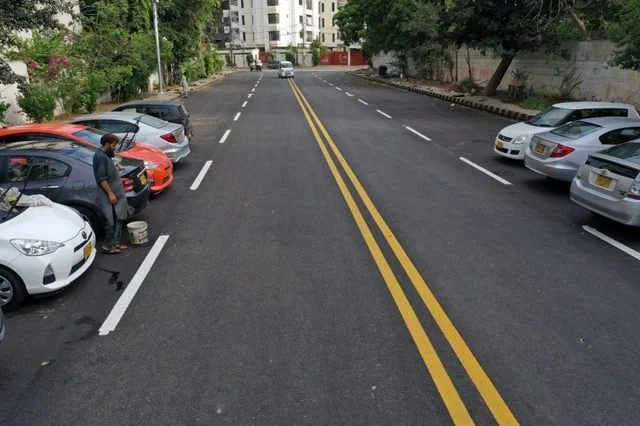Amazing use of Waste- Plastic Bottle
Over 2.5 tonnes of discarded Shell lubricant bottles were ingeniously repurposed for the construction of an impressive 730-foot long and 60-foot wide road adjacent to Shell House in Karachi is a great example for us.
Envoirmental Issues in Balochistan
Balochistan, a province grappling with mounting environmental challenges, requires innovative solutions that address waste management and promote sustainability. In this context, Shell Pakistan’s recent initiative to build roads using discarded plastic bottles of lubricants stands as a commendable example.
This groundbreaking endeavor not only tackles the issue of waste disposal but also paves the way for a more cost-effective and environmentally friendly approach to road construction. With Balochistan in dire need of improved infrastructure, Shell Pakistan’s plastic bottle roads offer a promising solution.
Traditional Roads
Traditional road construction methods often impose significant financial burdens on governments, limiting their capacity to develop adequate infrastructure. However, Shell Pakistan’s approach demonstrates that roads can be built with relatively low costs by utilizing tons of waste plastic bottles.
This not only benefits the company but also opens doors for other regions and governments to adopt similar approaches, effectively addressing infrastructure needs without straining limited financial resources.
Plastic waste has become a global environmental crisis, and finding effective ways to manage it is crucial. Shell Pakistan’s decision to repurpose discarded plastic bottles as a construction material exemplifies the power of human ingenuity.
Transformation of Waste into Valuadded Resource
By transforming waste into a valuable resource, the company takes a proactive step towards reducing the environmental impact of plastic pollution. This innovative solution serves as a beacon of hope, showcasing how waste can be converted into a valuable asset for sustainable development.
One of the most remarkable aspects of Shell Pakistan’s plastic bottle road project is its cost-effectiveness. Plastic bottles, available at minimal costs, offer a viable alternative to expensive construction materials used in traditional road building.
By utilizing discarded bottles, Shell Pakistan demonstrates how affordability and sustainability can go hand in hand, ensuring the construction of more roads and addressing the connectivity challenges faced by Balochistan.
Moreover, plastic bottle roads have proven to be durable and long-lasting. They exhibit greater flexibility and resilience, capable of withstanding heavy traffic loads and adverse weather conditions.
The enhanced durability of these roads results in reduced maintenance requirements and prolonged lifespan, saving valuable time and resources. This aspect is particularly significant for Balochistan, where limited resources need to be allocated strategically to meet the region’s infrastructure demands.
Shell Pakistan’s plastic bottle road initiative has the potential to inspire a paradigm shift in how we view waste management and infrastructure development. It sets an example of successful collaboration between private enterprises, government agencies, and local communities to achieve sustainable solutions.
By encouraging further research, investment, and replication of this approach, Balochistan can lead the way in transforming waste into valuable resources, while inspiring other regions to embrace similar initiatives. This innovative and responsible corporate action by Shell Pakistan contributes to a greener and more sustainable future for all.
Balochistan urgently needs improved infrastructure to address its connectivity challenges and foster economic growth. Shell Pakistan’s plastic bottle roads provide a promising solution, offering cost-effective, durable, and environmentally friendly alternatives to traditional road construction methods.
By embracing this transformative approach, Balochistan can pave the way for a future where waste is regarded as a valuable resource, and road construction becomes a catalyst for sustainable development. It is crucial to support and expand these initiatives, harnessing innovation to create a greener, more prosperous Balochistan.


